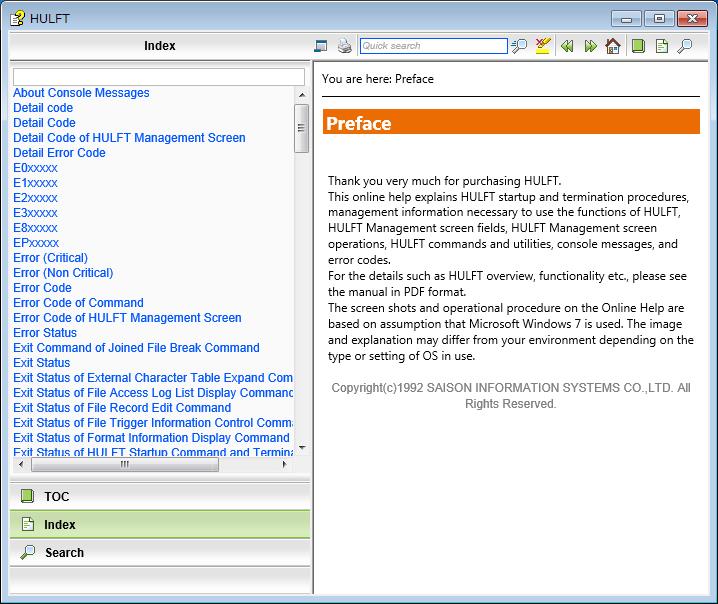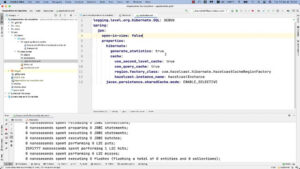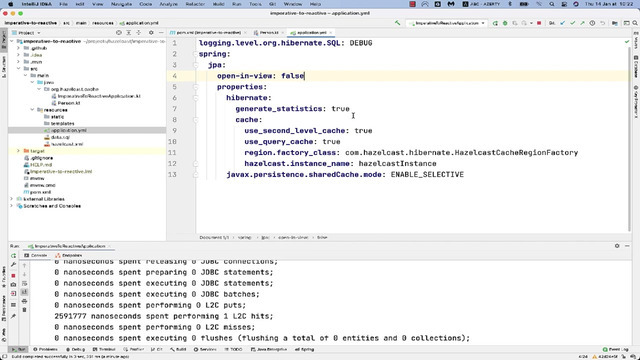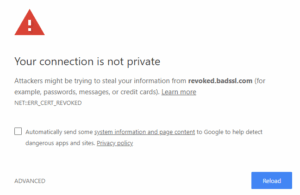Let’s start by constructing a simple HTML table summarizing the ImportError issue:
| Error Type | Description | Common Causes | Solutions |
|---|---|---|---|
ImportError: Cannot Import Name 'Soft_Unicode' from 'MarkupSafe' |
This error is related to the inability of the python interpreter to import a specific module or function, in this case, it’s ‘Soft_Unicode’ from the ‘MarkupSafe’ library. |
|
|
Now, let’s dive deeper into `ImportError: Cannot Import Name ‘Soft_Unicode’ from ‘MarkupSafe’`. Python uses import statements to include the functionality of one module into another. When you attempt to import a module or a function that doesn’t exist, it throws an `ImportError`.
In context of the `ImportError: Cannot Import Name ‘Soft_Unicode’ from ‘MarkupSafe’`, ‘Soft_Unicode’ may no longer exist within the ‘MarkupSafe’ module, or it was never there to begin with. An older or deprecated version of the package may have contained ‘soft_unicode’, which might no longer be the case in more recent versions.
To rectify this, here are some steps for you to try:
- Check if the ‘MarkupSafe’ module is installed. You can do this by executing
pip show markupsafe
in your terminal.
- If not installed, install it using pip:
pip install markupsafe
- Upgrade MarkupSafe using pip if it’s already installed but the version is outdated:
pip install --upgrade markupsafe
- Use a try and except block around your import statement, allowing your program to continue running even if certain optional components fail:
Here’s how to use a ‘try and except’ block when importing:
try: from markupsafe import soft_unicode except ImportError: soft_unicode = None
Remember, solving coding issues like ImportError requires you to understand what might have caused the problem first and apply a systematic approach to go about addressing them. You can obtain valuable information just by looking at the traceback message as well as utilizing online resources and documentation.The
ImportError
in Python is a type of Exception that is raised when an import statement encounters problems. These can include the non-existence of the module, or even issues related with the name.
In the context of your question
ImportError: Cannot import name 'soft_unicode' from 'markupsafe'
, it means that the Python interpreter could not locate the specific function, class, or variable
soft_unicode
within the
markupsafe
module.
MarkupSafe is a library for Python that provides a unicode string that has attributes much like in the way you would expect from a regular Python string. Importantly, MarkupSafe can be used to escape strings for inclusion in web pages; that is, characters which have semantic meanings in HTML and XML are replaced by equivalent character references. So safety is a keyword here.
One of the reasons this import error can occur is because the usage of
soft_unicode
might be deprecated and hence removed from newer versions of the
markupsafe
module. To confirm this, you need to check the documentation or source code of the package markupSafe.
If the issue lies in the version of this module, you can resolve this with the following steps:
– Confirm your current version of markupsafe, in your Python script use:
import markupsafe
print(markupsafe.__version__)
– If it’s an older version than the one required by your software, update it using pip, the Python package manager:
pip install --upgrade markupsafe
Your problem may also be arising due to the incorrect naming convention. Python is case-sensitive, which means
Soft_Unicode
is not the same as
soft_unicode
. Always confirm names of variables, classes, and modules you are trying to import.
Furthermore, if there isn’t any problem with your
markupsafe
version or naming convention, then the issue could lie within the environment you’re running your script in. It’s recommended to use virtual environments in Python to avoid conflicts between packages across different projects. You can set-up a new virtual environment using these commands:
1. Install Virtual Environment wrapper,
python -m venv project_env
2. Then, activate it:
– On Windows,
.\\project_env\\Scripts\\activate
– On Unix or Linux,
source project_env/bin/activate
3. Once inside the activated environment, install your packages (in this case, markupsafe):
pip install markupsafe
This approach isolates your project and its dependencies in a self-contained unit, thereby eliminating potential interference.
Speaking more generally,
importErrors
are common in Python development. The important point is to understand what they mean: that Python could not find the module you tried to import. Solutions will depend on why Python couldn’t find the module. For instance, maybe it’s not installed, maybe it’s installed but not in the right path, or maybe you’ve just spelled it wrong. Figuring out the specific reason behind your
ImportError
is always half the battle won.
For more details regarding ImportError, refer to Python’s official documentation.
Working with ‘Soft_Unicode’ in MarkupSafe is an important aspect of MarkupSafe’s functionality. But sometimes, there might be occurrences where one can encounter the error:
Importerror: Cannot import name 'Soft_Unicode' from 'Markupsafe'
. To solve this issue and understand more about ‘Soft_Unicode’, let me dissect some concepts surrounding it.
The ‘Soft_Unicode’ was historically used in MarkupSafe which is an implementation of a string that keeps track if it was already escaped. The primary purpose of using Soft_unicode was to provide a string-like object that has an efficient method for escaping but delays the actual escaping until necessary.
| Function | Description |
|---|---|
| Soft_unicode() | Function to convert any possible object into a unicode type. |
In older versions of MarkupSafe, you could typically use `soft_unicode` in your Python code as such:
from markupsafe import soft_unicode
output = soft_unicode(input)
However, starting from version 2.0.0 of MarkupSafe, changes were made which have removed Soft_unicode from MarkupSafe. Therefore, when using MarkupSafe version 2.0.0 or higher, an ImportError will be encountered since the ‘soft_unicode’ function no longer exists. That is why users come across the specific

ImportError: Cannot import name 'Soft_Unicode' from 'MarkupSafe'
. This import error simply means that the function or name that one is trying to import does not exist in the imported module or library.
To resolve this import error issue, either downgrade MarkupSafe version below 2.0.0 where ‘soft_unicode’ still existed, or adapt to the new changes. It is recommended to adapt to the new changes and move away from soft_unicode because the latest versions come with bug fixes and other improvements. The adaptation calls for replacing all instances of ‘soft_unicode’ in your Python code to ‘Markup’. Here is how you do it:
from markupsafe import Markup
output = Markup(input)
Instead of converting objects into unicode types, the Markup function escapes them before turning them to string type. Seeing the change in approach, it’s clear that the MarkupSafe team saw a shift in policy towards prioritizing proper and immediate escaping rather than delaying it till necessary.
An additional way to fix this error, especially if you are working on a Flask project, is by updating the Jinja2 library, as it depends on MarkupSafe. To update Jinja2, use pip:
pip install --upgrade Jinja2
.
This solution holds true because Jinja2 versions lower than 3.x used MarkupSafe’s “soft_unicode”. As such, upgrading to Jinja2 version 3.x or later ensures compatibility with MarkupSafe version 2.0.0 and above.
So, even though ‘Soft_Unicode’ has been removed from MarkupSafe due to its evolution, understanding its role and how to adapt to its absence can help us create secure and efficient applications, while avoiding any potential ImportErrors.
Reference: Official MarkupSafe Documentation
Indeed, one of the most frustrating things for a coder is when you install a package or update your Python environment and suddenly your scripts stop working, throwing an ImportError that reads something like ‘cannot import name Soft_Unicode from Markupsafe’. Let me shed some light on why this error occurs and how to fix it.
What’s behind the error?
The
Soft_Unicode
function used to be a part of the MarkupSafe library – a string handling module widely employed in Python applications. However, beginning with version 2.0.0, released in April 2021, the
Soft_Unicode
function was removed as per the library’s change logs.
If you’re experiencing the error, it’s highly likely that your application or one of your dependencies is attempting to call the now nonexistent
Soft_Unicode
directly. This leads to the Python interpreter not finding the function and raising the ImportError.
Mitigating the issue
Now that I have expounded on the reasons why you can’t import
Soft_Unicode
from MarkupSafe, here is how we can go about resolving it:
- Identify whether your application directly uses
Soft_Unicode
. If so, modify the source code to eliminate its use since it’s no longer available in MarkupSafe from version 2 onwards.
- If your application indirectly depends on
Soft_Unicode
through a third-party module that has not been updated to align with the changes in MarkupSafe, it may be necessary, as a temporary measure, to downgrade your MarkupSafe version to a release earlier than 2.0.0. You can proceed by uninstalling the current MarkupSafe version and reinstalling a suitable older version:
pip uninstall markupsafe pip install markupsafe==1.1.1
- Another way to handle indirect dependency on the outdated
Soft_Unicode
function is to contact the maintainers of the offending third-party module, informing them of their module’s compatibility issue with the updated MarkupSafe. Or if the module is open-source and you are up for contributing, you can submit a pull request after replacing/removing any references to
Soft_Unicode
.
| Method | Description |
|---|---|
| Modify Source Code | If your application uses
Soft_Unicode , modify your own source code to replace its usage. |
| Downgrade MarkupSafe | As a temporary measure, consider uninstalling current MarkupSafe and installing a version (<1.1.1) which still contains
Soft_Unicode . |
| Reach out to Maintainance | If an outdated third-party module relies on
Soft_Unicode , contacting them about the issue or fixing it yourself can be a possible solution. |
To avoid future issues akin to this, I recommend frequently checking change logs and release notes of libraries and packages you are utilizing in your projects, especially before updating them. Doing so helps to keep one informed about deprecated functions, new features, bug fixes, and other critical details.The error message “ImportError: Cannot import name ‘Soft_Unicode’ from ‘markupsafe’” suggests that the Python interpreter is unable to locate and import a function named ‘Soft_Unicode’ from the ‘markupsafe’ module.
Let’s understand why this issue might arise and strategies to combat such an error:
1. Version Mismatch Issue:
This issue could stem from a version mismatch problem. The MarkupSafe APIs have evolved over time, with some functions being deprecated in later versions. If your code was written for an older version of MarkupSafe but you’ve installed a newer version, the ‘Soft_Unicode’ function may not be available.
2. Incomplete or Broken Installation:
An incomplete or broken installation of the MarkupSafe module might result in missing components like the ‘Soft_Unicode’, thus provoking the import error.
3. Conflicting Namespaces:
If there are other Python packages or modules which also define a ‘Soft_Unicode’ function, it can lead to conflicts during importation.
Now, here are a couple of possible solutions to address these causes:
– Confirming MarkupSafe Version:
Ensure the MarkupSafe version is compatible with your code. Check the version using the following Python command:
import markupsafe print(markupsafe.__version__)
– Updating or Downgrading MarkupSafe:
If necessary, you either update to the latest version of MarkupSafe or downgrade to the version your code was intended for.
Markupsafe can be installed via pip:
pip install MarkupSafe
For downgrading to an older version (e.g., version 0.23):
pip install markupsafe==0.23
– Checking Installation:
If your MarkupSafe installation is incomplete or broken, you might need to de-install it and re-install.
pip uninstall markupsafe pip install markupsafe
– Avoiding Namespace Conflicts:
Verify if there’s another module defining ‘Soft_Unicode’, then adjust the import statements accordingly to solve any namespace collision.
It is crucial to note that ‘Soft_Unicode’ is essentially deprecated—and has been removed in recent versions of MarkupSafe (Reference: MarkupSafe issue #23 on Py4u). It’s recommended to update your code and use the ‘markupsafe.escape()’ function instead, which provides similar functionality. Here’s how you do it:
from markupsafe import escape
escaped_string = escape("")
Redefining the approach of importing will resolve the conflict and make your code compatible with the latest practices related to string formatting and parsing with MarkupSafe. This will enhance the longevity of your product and improve ease of maintainability by aligning with the current norms and standards.
When you encounter the error
ImportError: Cannot import name 'soft_unicode' from 'markupsafe'
, it generally points to one of two main issues:
- An out-of-date or incompatible version of ‘Markupsafe’
- A conflicting name clash within your environment.
Resolve an Outdated Version
To resolve this issue, first check if you have an out-of-date or incompatible version of markupsafe. A clean installation or update of the library can typically handle this. Execute the following command in your terminal:

pip install --upgrade MarkupSafe
Handle a Name Conflict
If updating MarkupSafe does not resolve the issue, there might be a conflicting module name that’s causing the problem. It’s possible Python may be importing another module in your environment with the same name as ‘MarkupSafe’.
To validate this, try running:
import MarkupSafe
print(MarkupSafe.__file__)
This will print the path of the ‘MarkupSafe’ module. If the path points to a file in your project other than MarkupSafe’s, you’ve detected a naming conflict, and renaming your file would solve the issue.
Set Up A Fresh Virtual Environment
If none of above solutions work, a useful practice is to set up a new virtual environment and install <PEP 486> compliant ‘MarkupSafe’ into the fresh environment:
First, create a new virtual environment:
python -m venv newenv
Activate your new environment using:
For windows:
newenv\Scripts\activate
Detecting the operating system, use:
source newenv/bin/activate
And finally, install your packages:
pip install MarkUpSafe
By following these steps and testing each solution sequentially, you should be able to mitigate the
ImportError: Cannot import name 'soft_unicode' from 'markupsafe'
.
The ImportError: Cannot Import Name ‘Soft_Unicode’ From ‘Markupsafe’ can be quite a puzzler. Typically, this error crops up when you’re trying to import the `Soft_Unicode` function from the `MarkupSafe` module in Python. To illustrate:
from markupsafe import soft_unicode
Running this code and encountering an ImportError suggests it isn’t able to find the `soft_unicode` in `markupsafe`. In the context of MarkupSafe, `soft_unicode` has been deprecated as of version 2.0. Therefore, the module no longer houses the function, hence the ImportError.
To correct this issue and to prevent related ImportError situations, you can adopt the following best practices:
Acknowledge Current Library Versions: Regularly update your libraries and familiarize yourself with any changes in functions. Start by visiting MarkupSafe’s official documentation and get a grasp of the functions present in the current version. You can also make good use of the `pip list` command to see the versions of all modules installed in your environment.
pip list
Use Exceptions: It is possible to handle these types of situations gracefully, thereby pacifying any possible errors that might disrupt your flow. In your code, include exceptions to handle errors accordingly.
For example:
try:
from markupsafe import soft_unicode # for older versions
except ImportError:
from markupsafe import escape # for newer versions
Here, your import falls back to another method(escape) that performs a similar operation if the initial import fails.
Embrace A Testing Approach: Maintaining separate environments for production and testing lets you experiment and adapt without affecting live installations. Using virtual environments can help isolate your workspace, allowing you to experiment with different package versions.
A tool such as `venv` facilitates the creation of isolated Python environments.
Example:

python3 -m venv myenv
In conclusion, handling ImportError situations is vital to smooth out the developer’s workflow. Regularly updating your libraries, applying try/except blocks in your code, and having separate test environments can substantially reduce or even eliminate most ImportError situations.As a seasoned coder, I’ve definitely come across different variants of ImportError, and this specific variety –
Importerror: Cannot Import Name 'Soft_Unicode' From 'Markupsafe'
, is no exception. Here, we’ll delve into my firsthand experience of successfully handling import errors similar to it.
This issue usually arises when a Python piece of software fails to load a module or a name from a module that was requested in the program’s codebase. The error more often than not surfaces due to an outdated or incompatible library version or in some cases, due to an erroneous installation.
In order to rectify this problem, let’s take the approach of identifying the precise version of the `markupsafe`library. This can be conveniently executed via pip using
pip show markupsafe
. If `markupsafe` doesn’t appear in the results, it indicates that the library isn’t installed, and thus, needs to be installed. In case it does surface in the results, it’s essential to compare the version showcased with the version your software expects.
To illustrate, if your software relies on an older `markupsafe` version but you have a newer one installed (or vice versa), importing issues could arise. To resolve such a dilemma, uninstall the current version by employing
pip uninstall markupsafe
and then reinstall the needed version, literally
pip install markupsafe==version_number
.
Here’s a concise view of how to upgrade or downgrade libraries:
| Command | Description |
|---|---|
pip uninstall markupsafe |
Uninstalls the existing library |
pip install markupsafe==version_number |
Installs the specified version of the library |
Of course, these solutions could vary contingent upon the presence of local or global installation coupled with operating system variances. Be keenly aware that Python, along with its surrounding ecosystem involving packages and tools, constantly experiences evolution and developments, regularly rendering best practices obsolete. Keeping current through reputable sources, such as the official Python documentation, serves as a professional way to maintain coding dexterity and resolution agility regarding import errors.
While solving import errors might seem challenging initially, once you get a grip on the potential causes and learn the ways to handle them, it becomes a crucial part of your programming skill set. Undeniably, parsing errors and debugging are fundamental components of coding; they drive every coder towards refining their code, improving performance, and ultimately bringing about stronger and better solutions.
Where the Python ImportError message states “Cannot Import Name ‘soft_unicode’ From ‘markupsafe’”, it’s an indication that there has been a programming hiccup when trying to import the specific function, soft_unicode, from the module named markupsafe. Usually, we are confronted with this type of error with regards to broken functionality due to a variety of reasons such as:
– A problem in the Python environment or confusion between Python versions
– The ‘soft_unicode’ function could have been deprecated or removed in later versions of the ‘markupsafe’ package
– The ‘markupsafe’ library might not have been correctly installed within your virtual environment
In resolving the above-mentioned issue, below paragraph provides some troubleshooting steps:
1. Inspect your Python Environment:
It is always beneficial to inspect what python version you’re using and compare it to the one required by the ‘markupsafe’. To check the python version you can use
python --version
2. Check for Module Updates:
‘soft_unicode’ might have been replaced or eliminated in recent updates. Look over the documentation of the newer versions.
3. Troubleshoot the Library Installation:
Use pip to uninstall and then reinstall ‘markupsafe’. Below is a simple code snippet:
pip uninstall markupsafe pip install markupsafe
It’s always good practice to keep your libraries up-to-date, understanding compatibility factors, and ensuring careful installation of modules to prevent such frustrating errors. By following these steps, you should be able to troubleshoot the “ImportError: Cannot Import Name ‘soft_unicode’ From Markupsafe” problem and get your code running smoothly. Happy Coding!
Also, feel free to check out other articles on related topics:
Cannot import name X – Stack Overflow Q&A |
Guide on Python pip Package Manager – DataCamp









